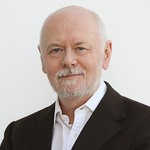Blog
A letter from Maputo
It’s early July and I’m back in Maputo, Mozambique, looking over the calm sea at the boats that fish the waters for the seafood that makes visiting this part of Africa such a treat. The sunset here is a delicate combination of pale turquoise, light grey, and warm pink. Coming from the Finnish summer, where we have 18 hours of light in Helsinki, it comes as surprise when the sun sets at around 6:00 pm in the southern African winter.
I’m inevitably drawn back to my first visits in the early 1990s, as Mozambique started its journey down the road to peace – after years of war. Then the city was busy with UN peacekeepers, diplomats engaged in urgent discussions with both sides to the conflict, NGOs assisting refugees communities damaged by war, and aid donors busy helping the government to plan and implement the war-to-peace transition. I was travelling in and out of Maputo during those years to work with a team in the Poverty Unit of the Ministry for Planning and Development. With little data available, and a fluid situation as the millions displaced by war returned to rebuild their lives, the Poverty Unit wrote the country’s first post-war poverty reduction strategy. It was one of the most personally satisfying projects that I’ve worked on in Africa.
I’ve returned a few times over the last 25 years to Mozambique, but not as often as I would like. Now I’m back in Maputo for the WIDER Development Conference, Public economics for development, as well as our event in collaboration with the Embassy of Finland, the Ministry of Economy and Finance of Mozambique, and the Tax Authority of Mozambique: Taxation and development: What can we learn from the Finnish experience in honour of Finland’s 100th anniversary of independence.
The three days have been packed with intense debate on taxation, public spending, social protection, and many other dimensions of public economics – with researchers, policymakers, and practitioners from Mozambique and across Africa and beyond. Afterall the UNU-WIDER network stretches into Asia and Latin America too, and many participants travelled a long way to be with us to share their knowledge and experience. We are looking forward to bringing you more news of these events on our blog, and you can find a wide range of materials, including papers, on the event pages above.
Immediately prior to our events in Maputo, UNU-WIDER colleagues and I participated in a winter school (though it felt warm enough for a Nordic summer) for graduate students – who were a delight to meet – organized by the GTAC project on behalf of South Africa’s National Treasury and held at the University of Pretoria. There I talked about our work on the Extractives for development project. It’s a topic of great relevance for the southern Africa region, given its rich mineral wealth. Mozambique in particular faces the challenge of managing larger future revenues from its offshore gas fields, which will come into production over the next few years. Resource-rich countries can run into many difficulties and the slump in oil and gas prices over the last few years has highlighted the importance of being prepared for the roller-coaster ride that commodity prices can take. The slump also points to the consequences for producers as international action on climate change takes effect, and as the world moves from fossil fuels to renewables. It seems solar power is already especially relevant for the region.
From southern Africa to western Africa, I’m now looking forward to being in Accra in early October for the next WIDER Development Conference, Migration and mobility. It will be great to see many old friends from Ghana and from the UNU-WIDER network, and meet many new friends as well. In the meantime, you can keep up to date on our many activities by following us on Facebook and Twitter.
Tony Addison is Chief Economist/Deputy Director at UNU-WIDER. Follow him on Twitter @TonysAngle.
The views expressed in this piece are those of the author(s), and do not necessarily reflect the views of the Institute or the United Nations University, nor the programme/project donors.
 Join the network
Join the network
